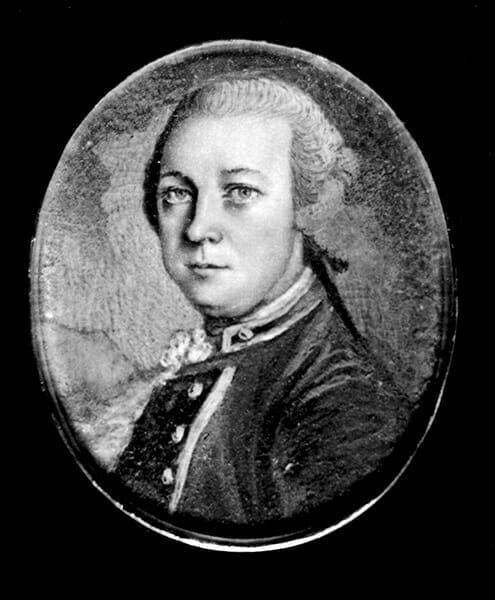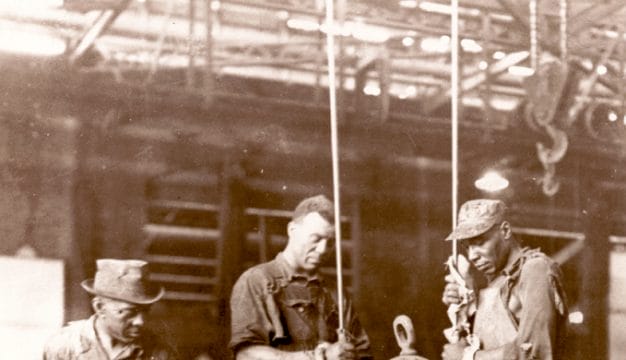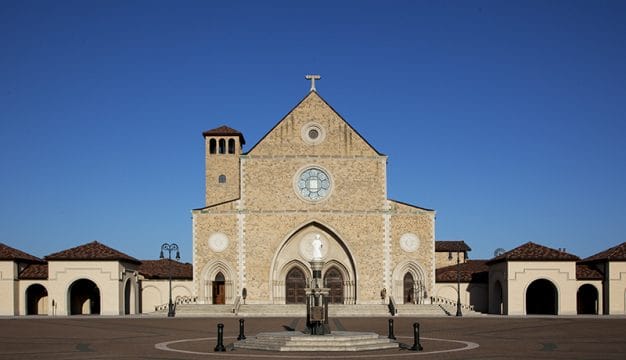Robert Farmar
 Robert Farmar
Robert Farmar (1717-1778), an American-born British army officer, served in the Caribbean and Europe and later commanded Fort Condé in colonial Mobile. Upon his retirement from the military, Farmar remained and became one of the city’s leading citizens as a planter, landowner, and politician out of his plantation near the present-day community of Stockton in Baldwin County.
Robert Farmar
Robert Farmar (1717-1778), an American-born British army officer, served in the Caribbean and Europe and later commanded Fort Condé in colonial Mobile. Upon his retirement from the military, Farmar remained and became one of the city’s leading citizens as a planter, landowner, and politician out of his plantation near the present-day community of Stockton in Baldwin County.
Farmar was the sixth of 12 children born to Thomas and Anne Farmar in 1717 in New Brunswick in the colony of New Jersey. His father was influential in New Jersey politics, serving as chief justice of the colony’s supreme court, a member of the governor’s council, and as the first mayor of New Brunswick. He traveled back to England for his education and then returned to New Jersey about the time that hostilities were breaking out between England and Spain in 1739.
The War of Jenkins’s Ear, so named for British captain Robert Jenkins losing his ear to a Spanish naval officer who boarded Jenkins’ merchant ship, spurred a military career for Farmar that took him around the world in service of the British Empire. Farmar and his father recruited a company of colonials within the New Brunswick area, and Farmar received a captain’s commission in the colonial militia on January 10, 1741. He and his troops joined British regulars in the West Indies, where their combined forces failed in assaults against the Spanish at present-day Colombia, Jamaica, and Panama. Farmar then secured a commission in the regular British army in 1744 as the conflict merged into the broader European War of Austrian Succession; he participated in many major battles. When the war ended in 1748, Farmar remained in Europe for approximately 13 years of peacetime garrison duty in Gibraltar and Scotland. In 1761, Farmar was promoted to the rank of major. Thereafter, he participated in the Seven Years War, known in the United States as the French and Indian War. Farmar served briefly in France before leaving to command his 34th Regiment of Foot during the capture of Havana, Cuba, which fell to the British in August 1762. Sometime after achieving the rank of major, Farmar married Mary Anderson of Yorkshire, England, with whom he would have two sons and three daughters.
The Seven Years War concluded with the Treaty of Paris in 1763, in which France ceded its lands west of the Mississippi River, including Florida, to Spain. Great Britain then ceded New Orleans to Spain in return for Florida, which at the time included portions of what was to become south Alabama. The French cession of Florida to the British also included Mobile. Farmar’s 34th Regiment was sent to Mobile to accept the transfer of sovereignty from the French at Fort Condé. When he arrived on October 20, 1763, Farmar accepted the official surrender of the fort, which was then renamed Fort Charlotte in honor of the British queen, Charlotte of Mecklenburg-Strelitz.
Although he allowed the French to remain Roman Catholic and keep their property, Farmar required an oath of allegiance to the British Crown and established English as the official language and the Anglican Church as the official church of Colony of British West Florida. He also instituted English common law, which laid the foundation for Alabama’s system of jurisprudence when it became a territory of the United States. Farmar ruled Mobile as a military commander for a year until George Johnstone was named governor of British West Florida and established a civil government in Pensacola. Johnstone had a belligerent demeanor that kept him at odds with civil and military authorities, including Farmar.
Farmar soon became embroiled in a disagreement with Johnstone and other government officials, who accused him of embezzlement and misuse of government funds and resources, including the sale of Fort Tombecbe. Although he was threatened with a court martial, Farmar led an expedition up the Mississippi River, where he took possession of Fort Chartres in the Illinois country (present-day Prairie du Rocher, Illinois) in December 1765. Upon his return, a general court martial awaited in Pensacola to hear multiple charges of malfeasance against him. Farmar was acquitted after a lengthy trial.
Farmar then travelled to England to plan the remainder of his military career, only to find that his commission had been sold while he had awaited his court martial. Farmar then petitioned and failed to get the British Colonial Office to appoint him governor of the British West Florida colony. He did manage to receive reimbursement for expenses related to his court martial before returning to his family in Mobile.
By the beginning of 1771, Farmar had become a wealthy plantation owner and slaveholder in the so-called Tensas District. His plantation, known as Farm Hall—on the banks of the Tensas River just northeast of Mobile near present-day Stockton—was one of the largest in the area, consisting of 1,280 acres and housing 65 enslaved people by 1773. The plantation quickly became a meeting place for traders and travelers coming in and out of Mobile. In the summer of 1775, Farmar hosted William Bartram, the renowned American naturalist and botanist.
Although retired, Farmar was considered by many locals as Mobile’s leading military officer and was referred to as “Major” Farmar. He was elected five times as the area’s representative in the General Assembly of British West Florida. He also served as Mobile’s justice of the peace for three terms. Farmar continued to amass thousands of acres of land all over the Gulf region in addition to his Tensas acreage, including land near present-day Natchez, Mississippi and Baton Rouge, Louisiana, as well as 1,800 acres near St. Stephens in present-day Washington County, 57,000 acres on the east side of Mobile Bay, a tract on Dauphin Island and lots in Mobile on Government and Conti Streets.
The colonists of British West Florida did not join their neighbors to the north in rebelling against the British Crown in 1776. Although Farmar expressed sympathy for the Americans’ desire for the same rights and privileges of their British counterparts, he feared an American overreaction and the danger that posed to the colonists of British West Florida. Farmar died in August 1778 before the American Revolution had run its course, and his widow Mary left Mobile for England in 1782. The site of Farm Hall plantation is marked with a historical marker.
Additional Resources
Brown, Richard F. “Colonial Mobile, 1712-1813.” In Mobile: The New History of Alabama’s First City, edited by Michael V. R. Thomason. Tuscaloosa: University of Alabama Press, 2001.
Hamilton, Peter J. Colonial Mobile. Edited by Charles Summersell. 1910. Reprint, University: University of Alabama Press, 1976.
Rea, Robert R. Major Robert Farmar of Mobile. Tuscaloosa: University of Alabama Press, 1990.



